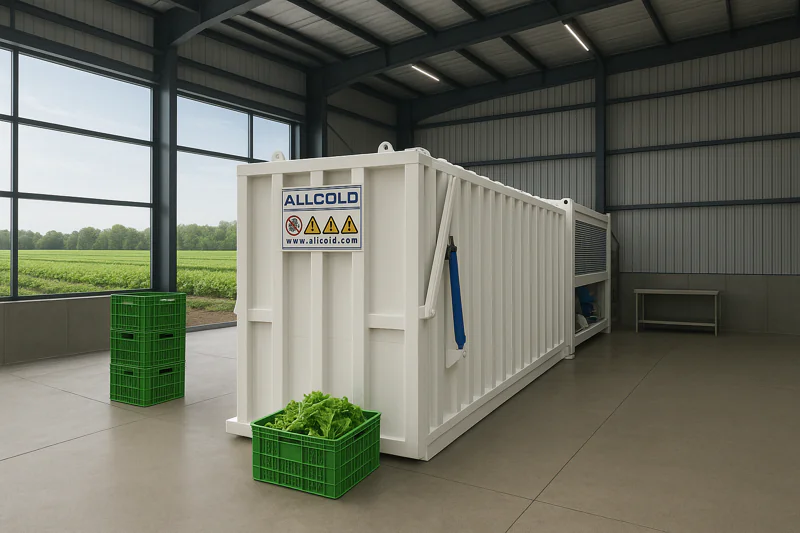
Vegetable Vacuum Cooling Machine – The Ultimate Solution for Farms and Supermarkets
Fresh vegetables spoil fast after harvest. Every delay in cooling means more waste and more financial loss.
A vegetable vacuum cooling machine removes field heat in minutes using pressure reduction and evaporation. It cools evenly, keeps vegetables crisp, and extends shelf life for farms and supermarkets worldwide.

Today, buyers in Europe, North America, and Asia demand consistent quality. Farms that cannot deliver lose contracts. That is why vacuum cooling is now the standard in global fresh produce supply chains.
Why Is Vacuum Cooling Better Than Cold Storage?
Cold rooms take hours to cool vegetables. During this time, produce loses water, freshness, and market value.
Vacuum cooling lowers the temperature in just 20–30 minutes. It cools every layer at the same time, reduces waste, and guarantees consistent quality.
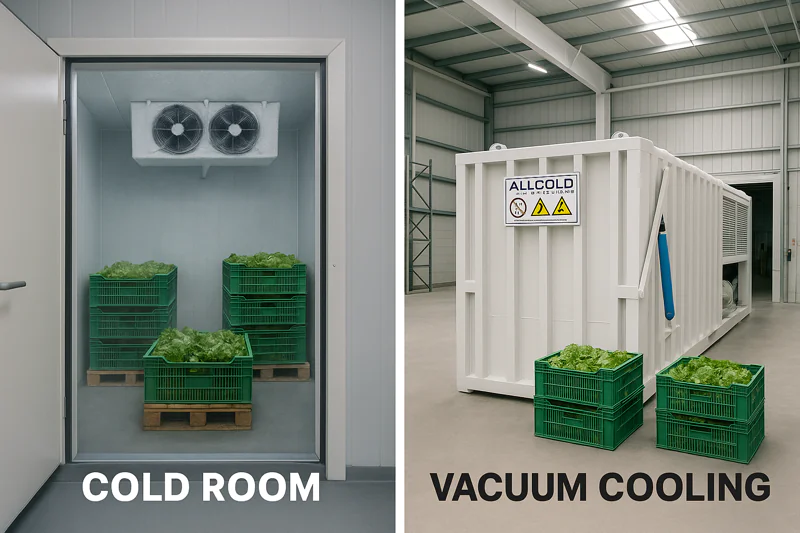
Speed Difference
Cold rooms need 4–6 hours to cool. Vacuum cooling takes 20–30 minutes. Faster cooling means trucks can load the same day, cutting delays and saving energy.
Cooling Uniformity
Cold air only cools the surface. The core stays warm, causing spoilage later. Vacuum cooling1 removes heat from inside the produce, giving uniform results.
Energy Use
Cold rooms run for hours and waste power. Vacuum cooling consumes less energy because cycles are short and efficient. Farms save on electricity and space.
| Feature | Cold Storage | Vacuum Cooling |
|---|---|---|
| Cooling Time | 4–6 hours | 20–30 minutes |
| Cooling Uniformity2 | Outer cold, inner warm | Even surface & core |
| Shelf Life Extension | Moderate | 2× longer |
| Energy Use | High | Lower |
How Does Vacuum Cooling Extend Shelf Life?
Fresh vegetables breathe after harvest. They lose water and energy. If not cooled, they wilt and spoil.
Vacuum cooling slows respiration, reduces microbial growth, and extends the time vegetables stay fresh for export and supermarket sales.
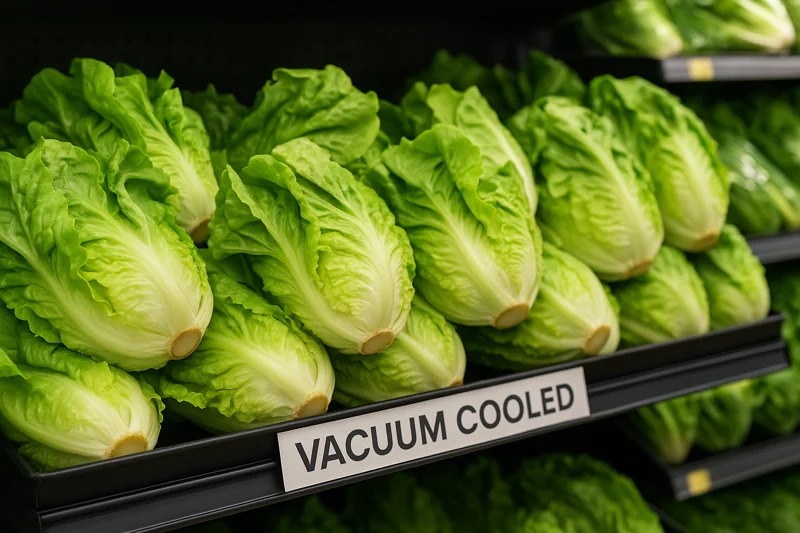
Respiration Rate
Warm vegetables respire fast, consuming sugars and energy. Vacuum cooling slows this process, giving vegetables a longer life. Lettuce can last up to 10 days instead of 3–4.
Water Loss
Cold rooms allow vegetables to lose weight through water loss. Vacuum cooling3 reduces this loss to only 2–3%. Farms sell more weight and earn more.
Bacterial Growth4
Quick cooling prevents bacteria from multiplying. This reduces food safety risks and protects brand reputation.
| Vegetable | Shelf Life w/o Vacuum | Shelf Life w/ Vacuum |
|---|---|---|
| Lettuce | 3–4 days | 7–10 days |
| Spinach | 2–3 days | 6–7 days |
| Broccoli | 5–6 days | 12–14 days |
Why Should Farms Invest in Vacuum Cooling?
Many farms hesitate because of upfront cost. But the investment pays back in 1–2 harvests.
Vacuum cooling reduces waste, saves energy, and secures long-term contracts with supermarkets and exporters.
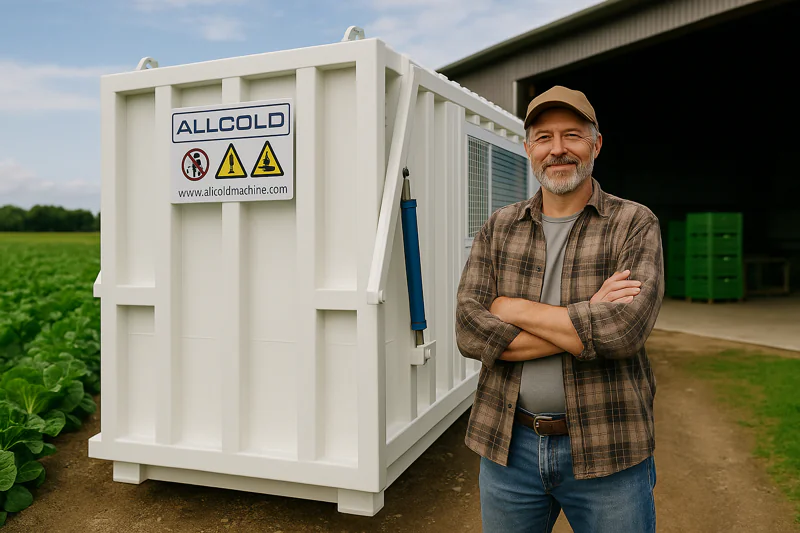
Reduced Rejections
Vacuum cooled produce5 stays fresher longer. Buyers reject fewer shipments. Farms sell more and build trust.
Energy Savings6
Short cycles mean lower energy bills. Farms can reduce reliance on cold rooms and use space more efficiently.
Market Access
Supermarkets and exporters often require vacuum cooled produce. Farms with vacuum cooling win more contracts and access premium markets.
| ROI Factor | Impact on Farms |
|---|---|
| Waste Reduction | 10–15% more sellable volume |
| Faster Operations | 80% less cooling time |
| Market Expansion | Export market access |
What Makes Vacuum Cooling Energy Efficient?
Energy cost is a major concern for farms. Cold rooms consume high power for long periods.
Vacuum cooling uses less energy per kilogram of produce. It cools faster, reducing the total operating time.
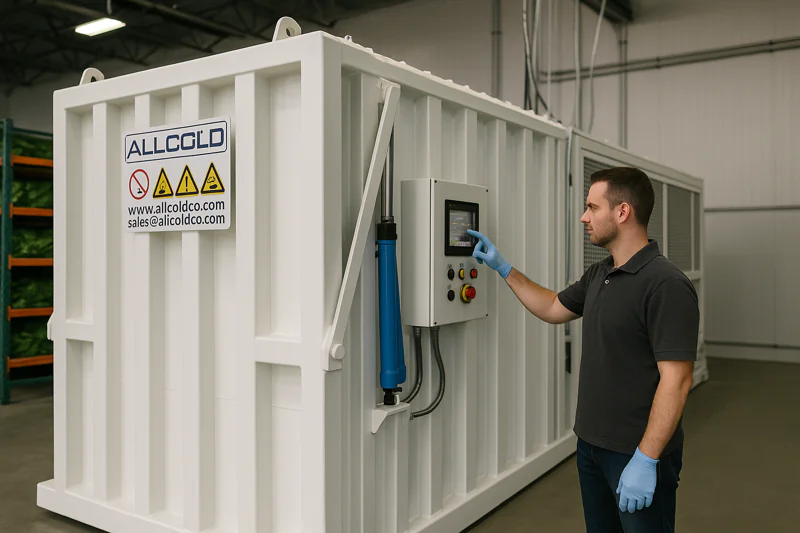
Shorter Cycles
Cycles last only 20–30 minutes. This reduces running hours for compressors and pumps, saving energy.
Direct Cooling
Vacuum cooling works by evaporation inside vegetables. This direct method removes heat faster and with less energy than circulating cold air.
Sustainability
Farms that use vacuum cooling show commitment to sustainability. Lower emissions and energy savings align with buyer requirements in global markets.
How Does Vacuum Cooling Improve Supply Chain Reliability?
Supply chains demand consistency. Buyers expect produce to arrive fresh every time.
Vacuum cooling ensures quality from harvest to shelf, reducing risks and strengthening supply relationships.
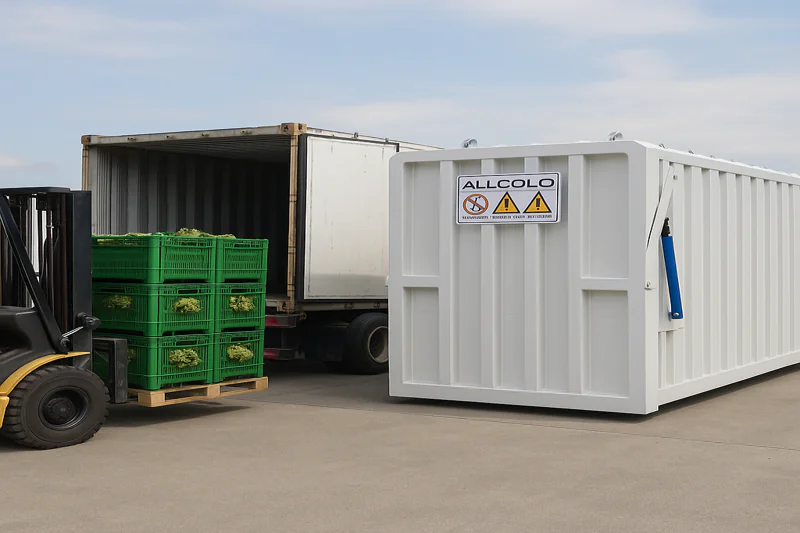
Shorter Cycles
Cycles last only 20–30 minutes. This reduces running hours for compressors and pumps, saving energy.
Direct Cooling
Vacuum cooling7 works by evaporation inside vegetables. This direct method removes heat faster and with less energy than circulating cold air.
Sustainability
Farms that use vacuum cooling show commitment to sustainability. Lower emissions and energy savings8 align with buyer requirements in global markets.
Why Choose Allcold for Vacuum Cooling Machines?
At Allcold, we design and build vacuum cooling machines for vegetables, bread, and cooked food.
We are based in China and export globally. Our clients include farms, wholesalers, supermarket chains, and food processors.
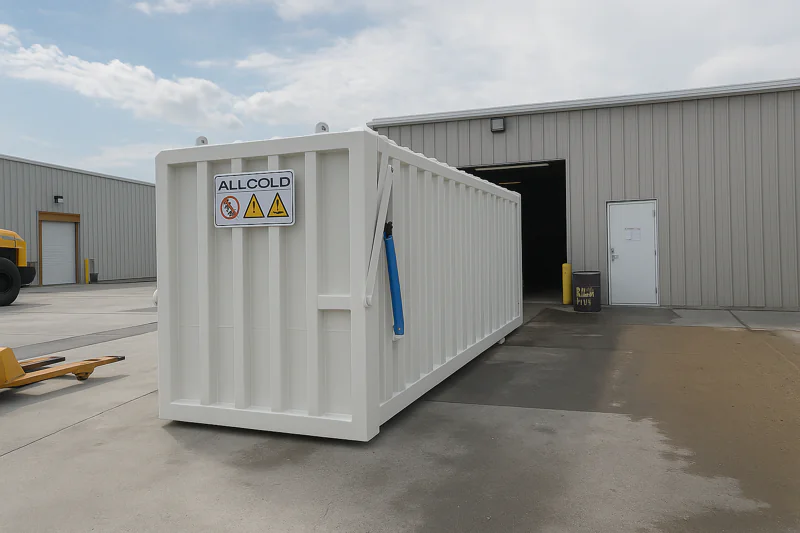
Our Advantages
- High-quality machines with top brand components
- Custom designs for different farm sizes and products
- Strong after-sales service and 24/7 technical support
- Factory-direct pricing and efficient delivery
Who We Serve
- Farmers needing fast cooling to cut losses
- Vegetable wholesalers supplying supermarket chains
- Exporters targeting Europe, North America, and Asia
- Central kitchens and food processors needing HACCP solutions
Call to Action
Vacuum cooling is no longer optional. It is the key to freshness, safety, and profitability.
👉 Contact us today to learn how Allcold vacuum cooling machines can transform your business.
- 📧 Email: [email protected]
Conclusion
Vacuum cooling is the most effective way to keep vegetables fresh, extend shelf life, and secure global market access. Farms that invest now will lead the future of fresh produce.
-
Explore the advantages of vacuum cooling, including faster processing times and energy savings, to enhance your agricultural practices. ↩
-
Understanding cooling uniformity is crucial for maintaining produce quality; discover how it impacts shelf life and spoilage. ↩
-
Explore how vacuum cooling extends shelf life and enhances food quality, crucial for both consumers and producers. ↩
-
Learn about the impact of quick cooling on food safety and how it helps maintain brand reputation. ↩
-
Explore this link to understand how vacuum cooling enhances freshness and reduces rejections, boosting farm sales. ↩
-
Discover how energy savings from efficient cooling can lower costs and improve farm efficiency. ↩
-
Understanding vacuum cooling can enhance your knowledge of energy-efficient methods in agriculture. ↩
-
Exploring energy savings strategies can help you implement sustainable practices in your farming operations. ↩

Mila
You May Also Like
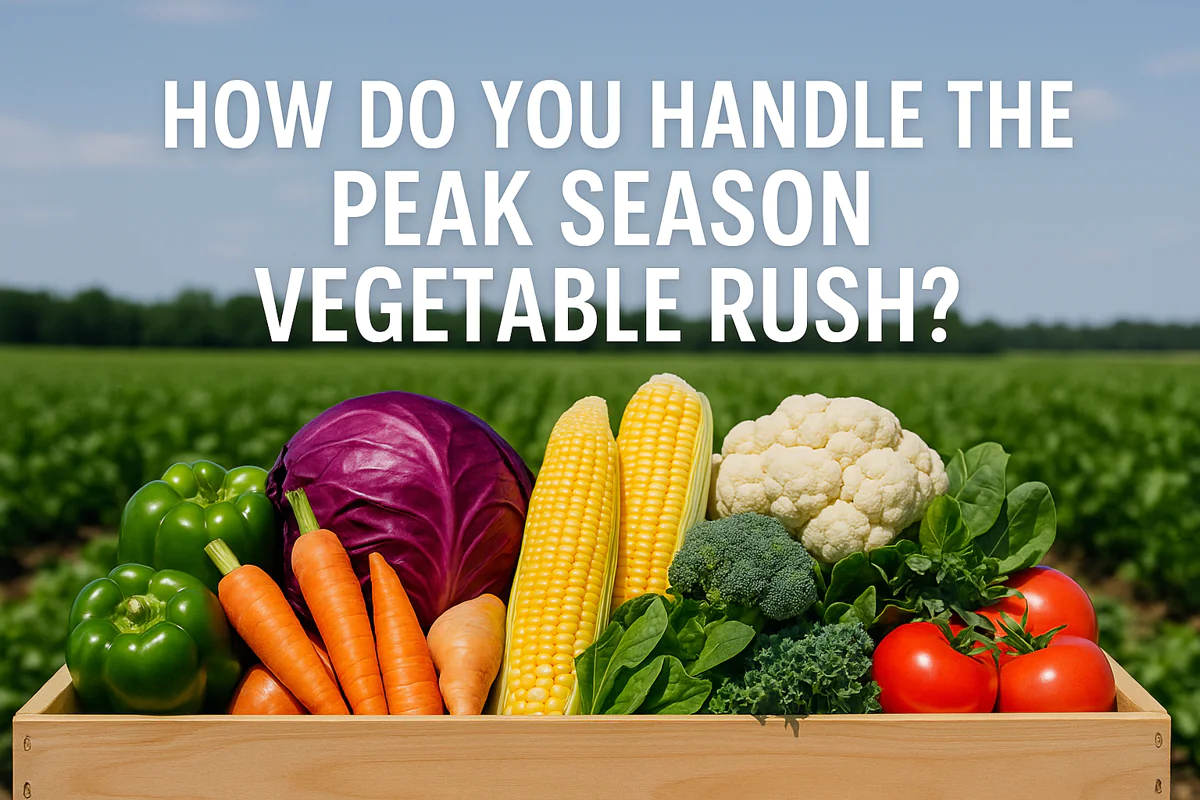
How Do You Handle the Peak Season Vegetable Rush?
The harvest season is here. Your fields are full of beautiful produce, but now you face the biggest challenge: a
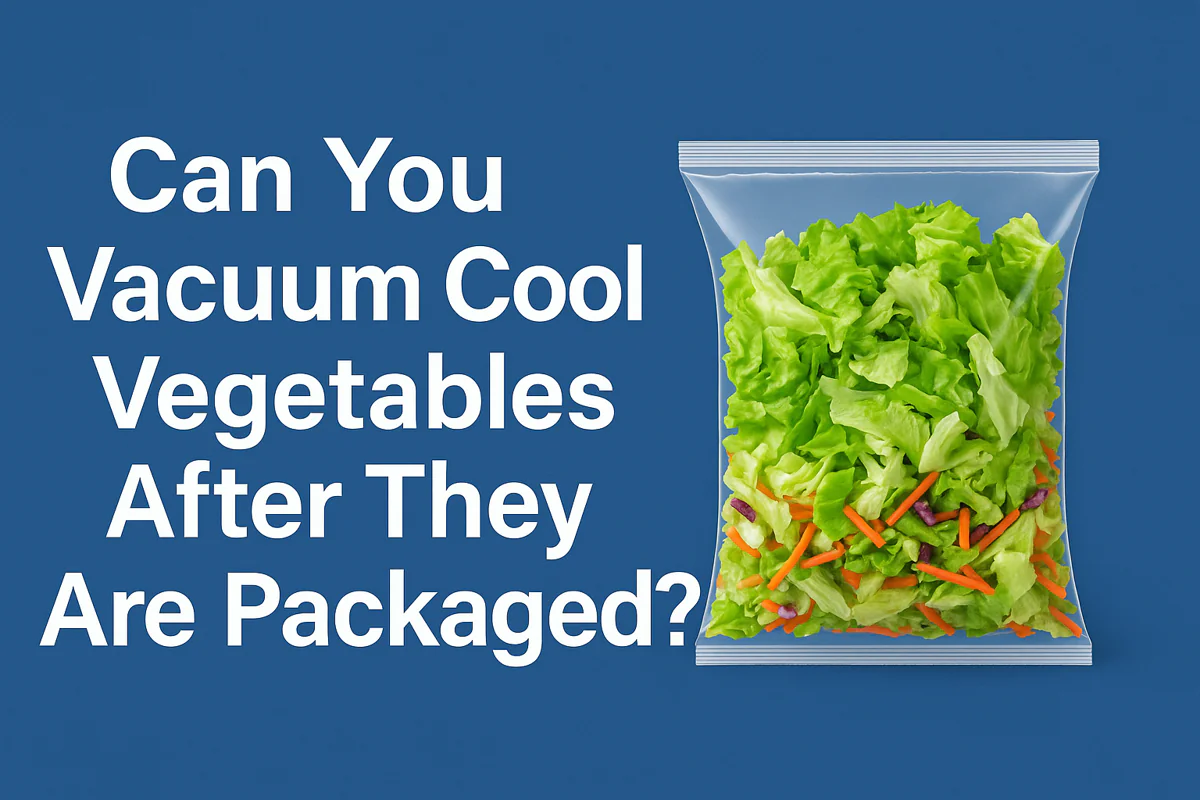
Can You Vacuum Cool Vegetables After They Are Packaged?
You’ve just packed bags of beautiful, fresh-cut salad mix. But the product is still warm from processing and washing. This
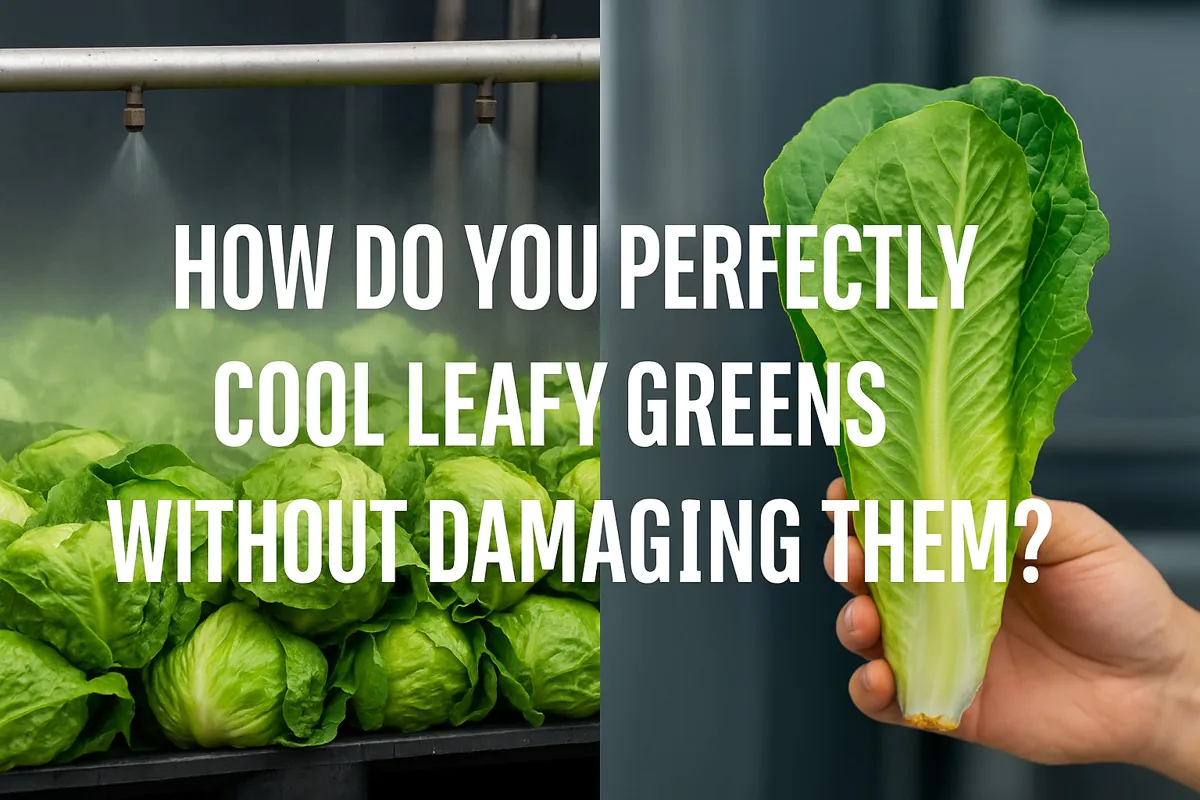
How Do You Perfectly Cool Leafy Greens Without Damaging Them?
You’ve invested in a vacuum cooler to protect your leafy greens, but the results aren’t always perfect. Sometimes the lettuce
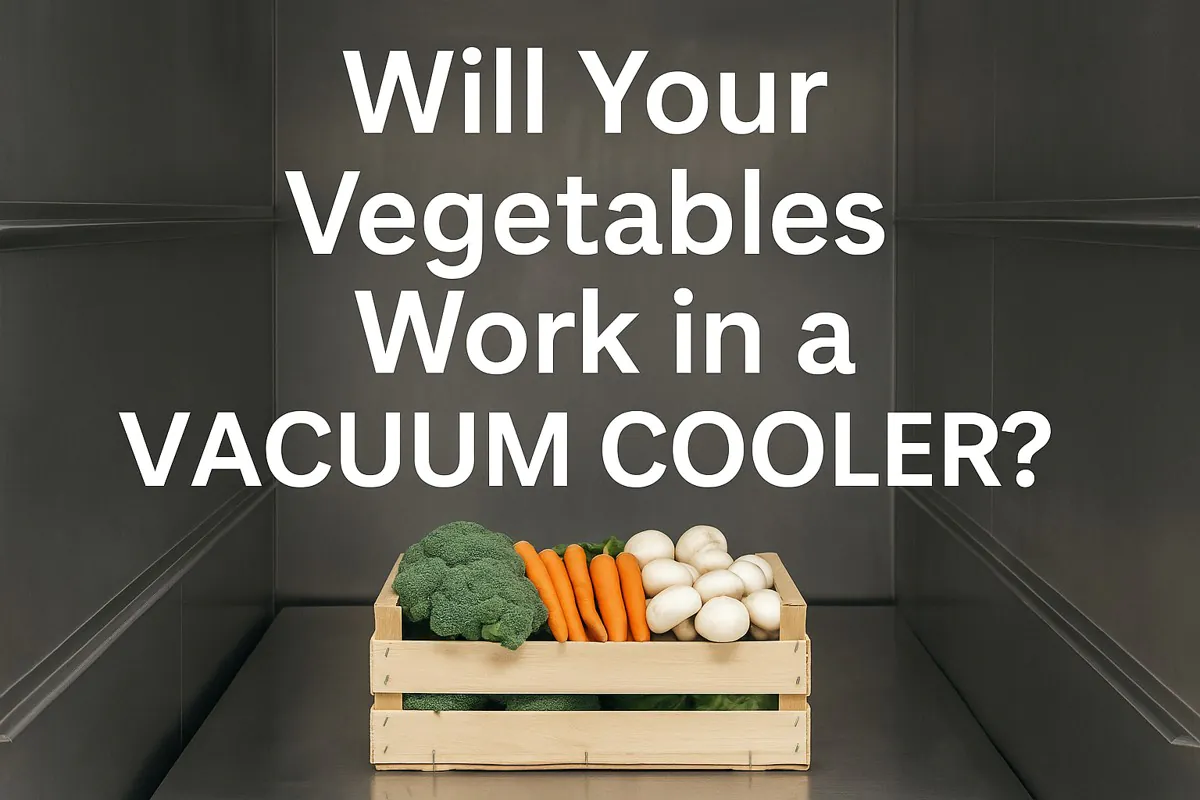
Will Your Vegetables Work in a Vacuum Cooler?
You’ve harvested a perfect crop, but the clock is ticking. Every minute of field heat is degrading the quality, reducing
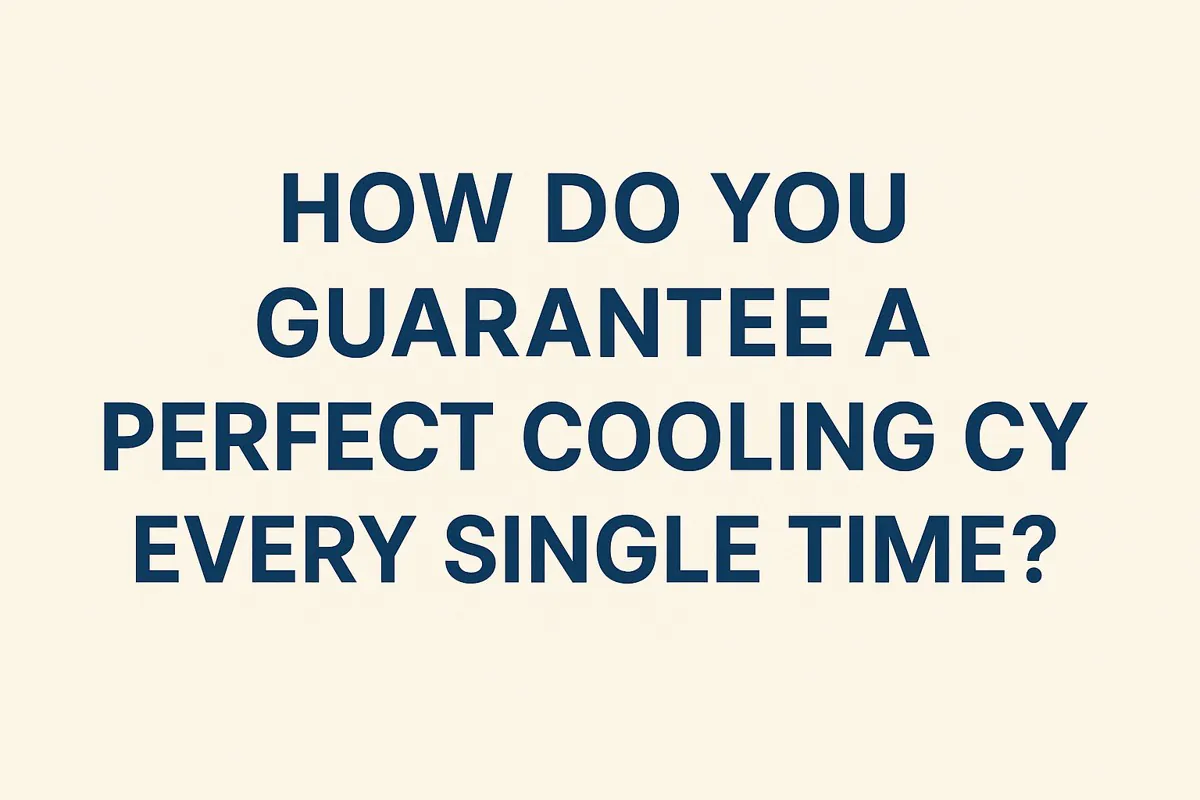
How Do You Guarantee a Perfect Cooling Cycle Every Single Time?
You’ve invested in a state-of-the-art vacuum cooler, but its performance depends entirely on the people who use it every day.

Are You Gambling with Your Export-Quality Vegetables?
You’ve grown a perfect crop, meeting every standard for size, color, and taste. Now comes the biggest challenge: shipping it
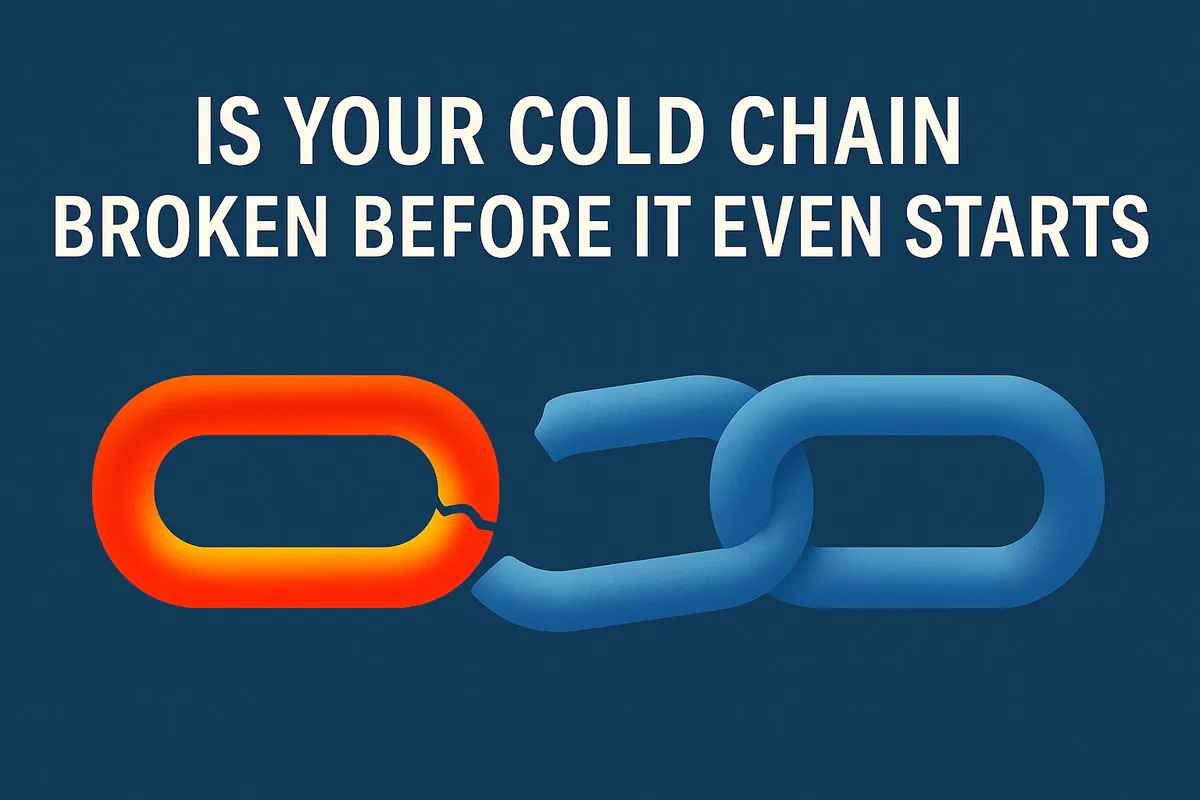
Is Your Cold Chain Broken Before It Even Starts?
Your company has invested millions in refrigerated trucks, state-of-the-art warehouses, and sophisticated inventory systems—a world-class cold chain. Yet, you’re still

Is Vacuum Cooling a Non-Negotiable Tool for Organic Growers?
As an organic producer, you’ve committed to a higher standard. Your customers pay a premium for vegetables that are not
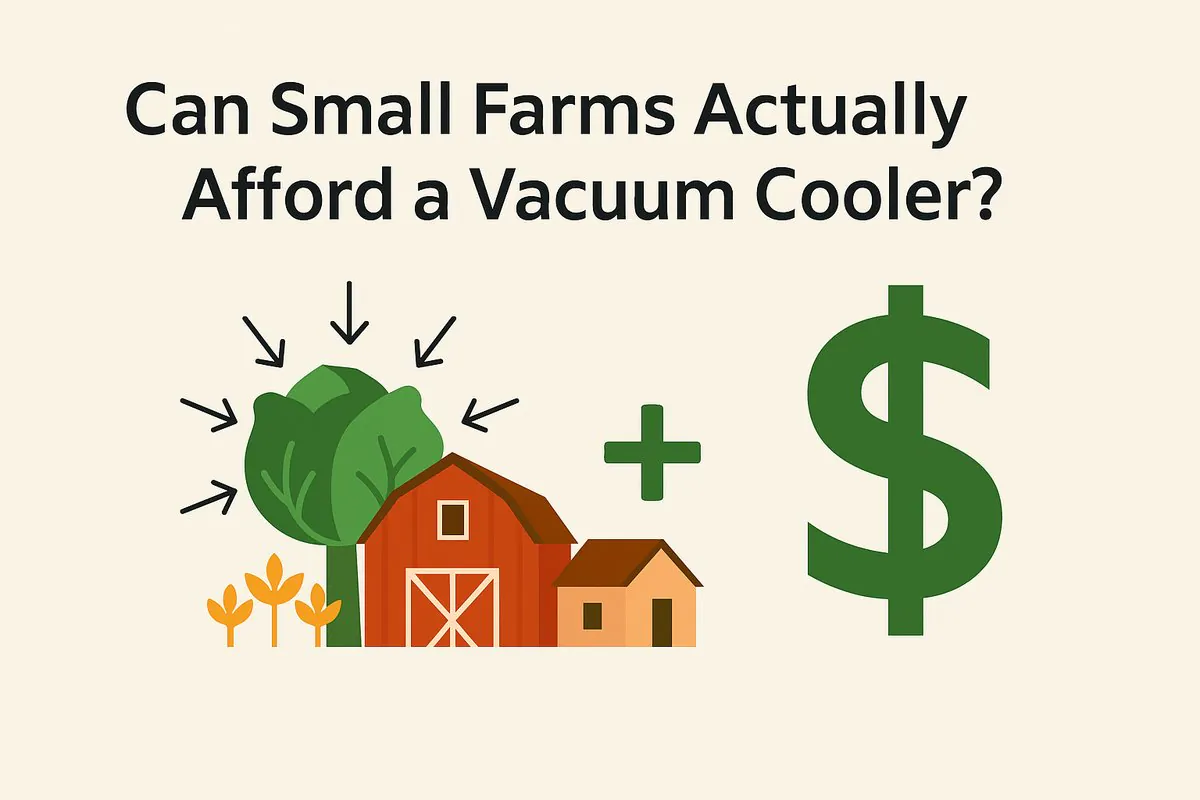
Can Small Farms Actually Afford a Vacuum Cooler?
You’ve poured your heart into your farm, producing the highest quality vegetables. But as soon as they’re picked, the summer
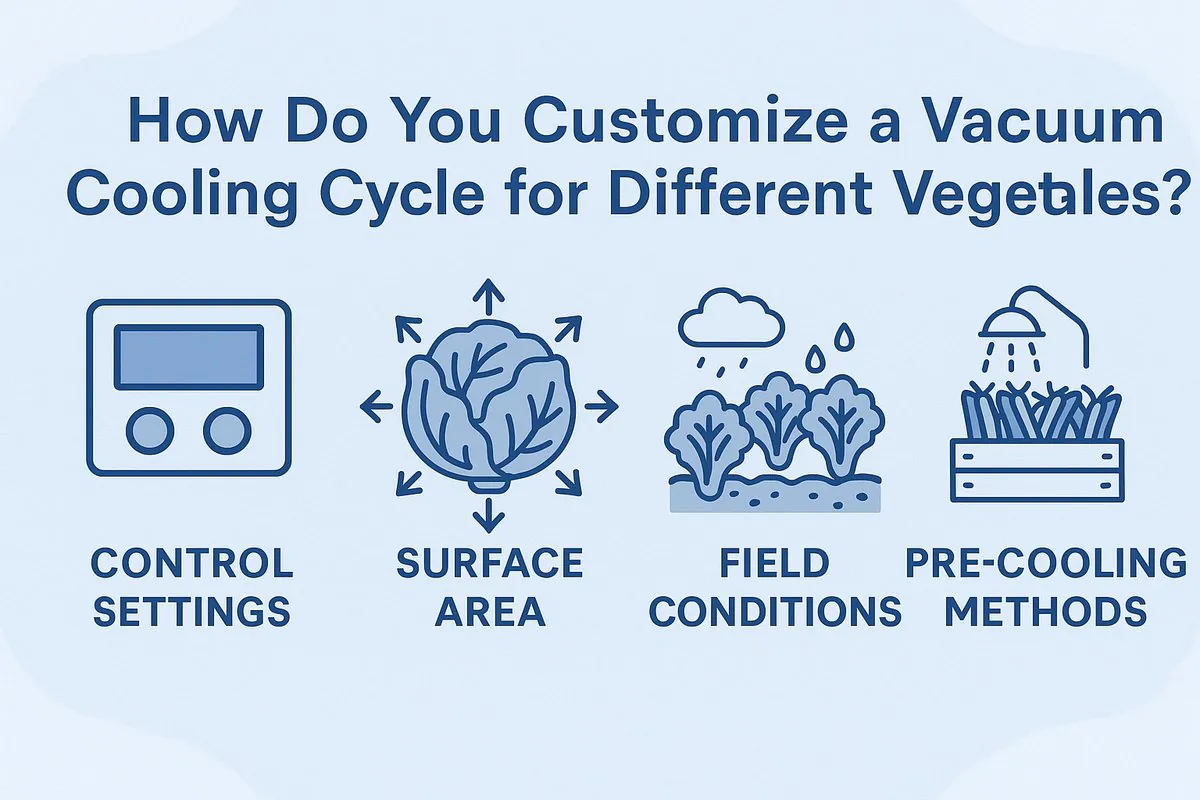
How Do You Customize a Vacuum Cooling Cycle for Different Vegetables?
You’ve invested in a powerful vacuum cooler, expecting it to be a simple "set it and forget it" solution. But
